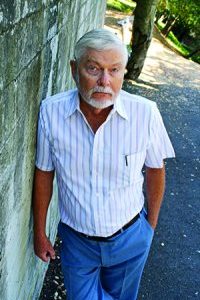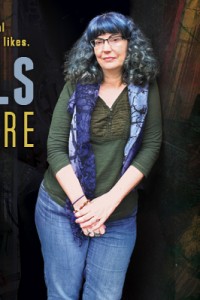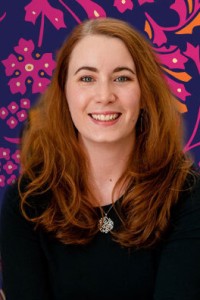Paul Tremblay: Aftermath
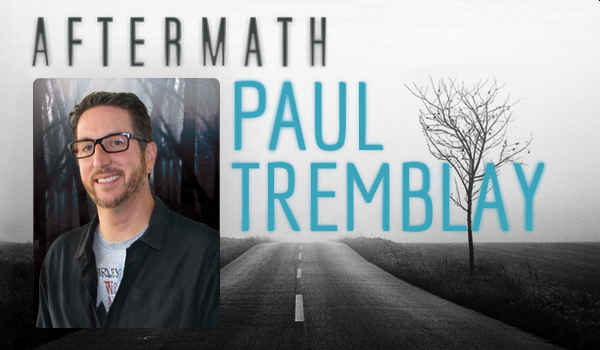
Paul Gaetan Tremblay was born June 30, 1971 in Aurora CO, and grew up in Beverley MA. He attended Providence College in Rhode Island, graduating in 1993, and in 1995 obtained a Master’s in Mathematics from the University of Vermont (1995). He became a math teacher and junior varsity basketball coach for a private high school after graduation. He began publishing with ‘‘King Bee’’ (2001), and most of his early work was under the byline Paul G. Tremblay. Notable short works include novellas City Pier: Above and Below (2007) and The Harlequin and the Train (2009), and Stoker Award finalists ‘‘There’s No Light Between Floors’’ (2007) and ‘‘The Teacher’’ (2007). First collection Compositions for the Young and Old appeared in 2004, followed by In the Mean Time (2010). He edited anthologies Bandersnatch (2007) and Phantom (2009) with Sean Wallace, and Creatures: Thirty Years of Monsters (2011) with John Langan.
Tremblay’s debut novel The Little Sleep (2009) started the PI Mark Genevich sequence, followed by No Sleep Till Wonderland (2010). Other books include Swallowing a Donkey’s Eye (2012), World Fantasy Award finalist and Stoker Award winner A Head Full of Ghosts (2015), and Stoker Award finalist Disappearance at Devil’s Rock (2016). With Stephen Graham Jones he wrote Floating Boy and the Girl Who Couldn’t Fly (2014, under the name P.T. Jones).
He lives outside Boston MA with his family.
Excerpts from the interview:
‘‘I wasn’t a reader until grad school. I was a good boy in high school , and I read for English class, and I vaguely remember reading as a kid, Choose Your Own Adventure stuff, but I didn’t really read for pleasure. I was small and skinny, and I wanted to be Larry Bird. I spent most of my time outside shooting hundreds of shots a day. Look at where it’s got me now! When I was outside, I had this interior fantasy world, because I was in my own head, outside shooting baskets and day dreaming, thinking about things. Music was important to me also. I’d come home and lay on the floor and tent the speakers over my head and lay in between them and listen to whatever records I happened to be listening to, for hours. I intensely remember the smell of the rug and the feel of the speakers, imagining I was performing the songs. I still do that when listening to music. I was definitely a child of the ’80s. Cable TV was new. I watched a ton of movies and a ton of TV. HBO would show the same movies over and over again, so I’d watch the same movies over and over again.”
…
‘‘I attempted some early novels that were not good at all. In the early 2000s, I started selling some short stories to horror markets. I joined the Horror Writers Association. When I joined they had this mentor program, and I got hooked up with Steve Eller, who’s a writer, and at the time he was a fiction editor for ChiZine, which was then called Chiaroscuro. It was a big fiction market, it paid professionally, and it was online. Steve was such a huge help for my development. I could never thank him enough. Then there was just finding the community and passing stories back and forth with friends. I think I got serious about writing in the late ’90s. The first stuff I wrote was terrible, and got rejected, but I started getting more encouraging rejection letters. First sales were for $20 or $25. I never would submit to non-paying markets. I had to get something. My first professional paying sales were in 2001.
‘‘I hope my strength is characters. It’s certainly my interest as a reader. I have a terrible memory for books, for story, even for the title or the characters’ names, and I can’t describe the plot usually a week or two after reading something – but I definitely remember the characters, and the emotions I felt. I hope that comes out in my writing, because that’s where my interest is.”
…
‘‘I’ll admit to a frustration with young-adult writing. I like reading YA, and there’s some good stuff that’s being done. I co-wrote a young adult novel with Stephen Graham Jones, and my frustration with that process is I feel like I don’t do the writing any differently. I think a strength of mine has always been writing child characters or teen characters. People have told me that the teen/child characters were the strengths of my most recent books. But when we wrote the YA novel we got feedback like, ‘There’s too much texting,’ or ‘We don’t like what the parents are doing.’ The book wasn’t for the parents or for the teachers. It was about what teens do and how they think. I’m not going to call myself a world expert on teens, but I’ve taught them for 20 years and I have two of them in my house now. I vividly remember that emotional life, and I still feel like a teen. To be fair, this is a very anecdotal experience of mine, but in YA I feel some people are writing to what they think the YA market is, as opposed to the actual teen experience. There’s a feeling of safety in some YA, like nothing bad is going to happen to any characters you care about. Which makes it less a horror story, and more of an adventure.”
…
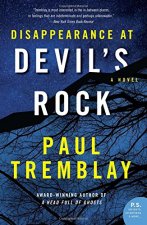 ‘‘In Devil’s Rock, I wanted to confront those heavy-duty emotions. If you haven’t already had a death in the family, you’re going to have to deal with that at some point. I think for some there’s almost a bit of attraction to that kind of grieflike when you see these adults who glom onto these large global catastrophes. They seem to react on such a personal level – it seems a little unseemly. There’s a weird attraction, a desire to know what happened. Maybe as a way to understand it… because you can’t understand it. The only way to try to understand a big horrible thing is to connect to it, even though it might not affect you directly. That’s why the emotional lives of characters in books are so interesting to me. I want to know why people react in certain ways to different situations, and what decisions they’re going to make after that. In the best horror stories, the horror happens somewhere in the middle. The interesting part for me is the aftermath: ‘What are people going to do now? How does anybody live through that?’ When horror’s done really well, it can get at those questions in a disturbing way.”
‘‘In Devil’s Rock, I wanted to confront those heavy-duty emotions. If you haven’t already had a death in the family, you’re going to have to deal with that at some point. I think for some there’s almost a bit of attraction to that kind of grieflike when you see these adults who glom onto these large global catastrophes. They seem to react on such a personal level – it seems a little unseemly. There’s a weird attraction, a desire to know what happened. Maybe as a way to understand it… because you can’t understand it. The only way to try to understand a big horrible thing is to connect to it, even though it might not affect you directly. That’s why the emotional lives of characters in books are so interesting to me. I want to know why people react in certain ways to different situations, and what decisions they’re going to make after that. In the best horror stories, the horror happens somewhere in the middle. The interesting part for me is the aftermath: ‘What are people going to do now? How does anybody live through that?’ When horror’s done really well, it can get at those questions in a disturbing way.”
…
‘‘I have a new book deal with Morrow. A couple of novels and a collection. The first novel will be in 2018, the collection in 2019, and another novel in 2020. The first novel is my twist on a home invasion story. I’m not really a fan of home invasion movies, though that’s a popular subgenre of horror. I thought, ‘How would I do a home invasion novel I’d like to read?’ The collection is going to be a lot of the stories I’ve written in the last five years. I might write a couple of originals. The fun part will be one original story that takes place in the universe of Disappearance at Devil’s Rock. Then I’m going to write a story featuring Merry from A Head Full of Ghosts. She’s going to be at a convention, after the book has come out, and she’ll be confronted by a fan, and tell the fan a story. That’s going to be a fun connection to both novels.”
Read the complete interview in the May 2017 issue of Locus Magazine. Interview design by Francesca Myman, author photo by Liza Groen Trombi.



